It's All About The Players
Recruitment in British Basketball
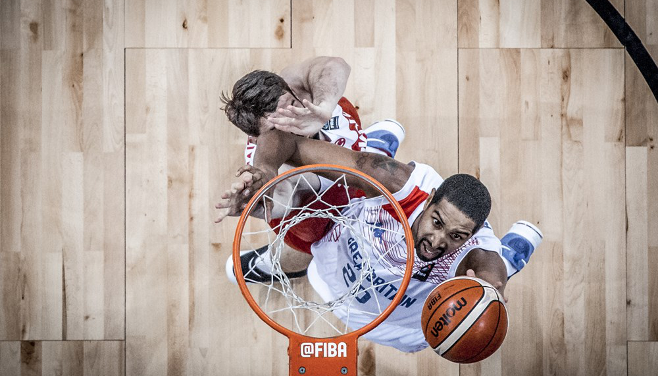
You can pump all the money you want into the highest level of the sport and provide the GB team with sums of money to help the team, but what is crucial is that the sports recruitment initiatives are in place for the next generation of basketball players to thrive in the UK.
In the second part of this series, investigating British basketball, we delve into the future of basketball and ask can it learn anything from the United States?
The big task in this country is getting the best young basketball players to stay in Britain rather than be tempted by the College's in the States - significantly it's not always successful travelling to America as “80% do not complete their studies," said by Dave Parry.
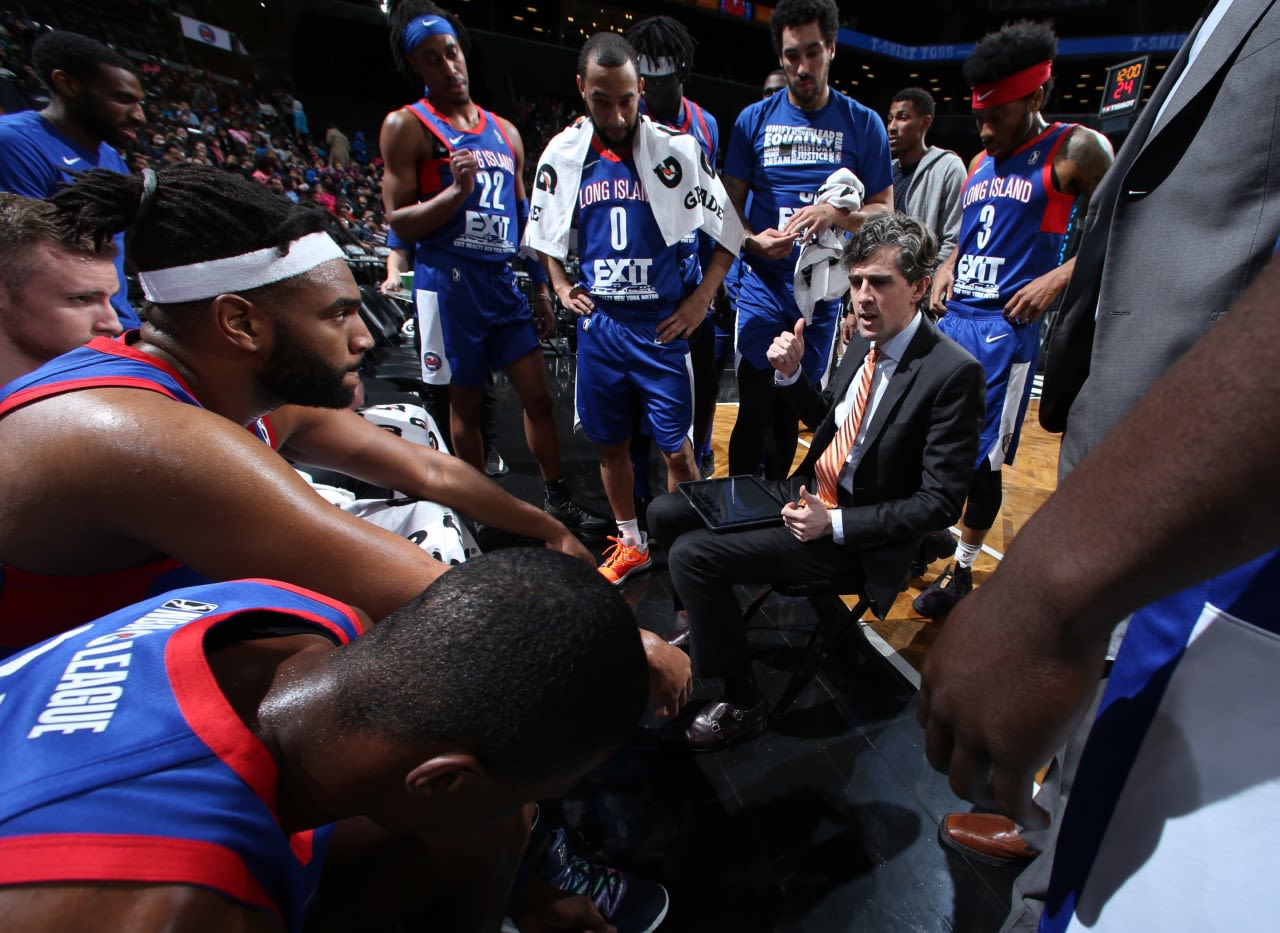
The Long Island Nets - Will Weaver (Right) IMAGE CREDIT: WILL WEAVER
The Long Island Nets - Will Weaver (Right) IMAGE CREDIT: WILL WEAVER
When you compare the two-recruitment systems, the American draft is a huge event in the offseason where the best college players in the country enter the professional basketball arena. In this country, there is a lack of talent in the universities to replicate the US system. The recruitment strategies would have to change to gain such talent. if that were to happen there may be scope to implement a draft in this country, however this may be something of a pipe dream as no collegiate draft system exists in the UK.
Will Weaver has vast experience coaching in America, from high school basketball all the way up to the NBA and most recently was the head coach of the Long Island Nets in the NBA G League. He shared his thoughts on the American draft system: “I don’t particularly think it’s a good system, but I think that a lot is driven by the financial framework of the collective bargaining agreement. It would take a seismic shift to change that before I think they’d consider changing the draft format.
“I’m a fan of the idea others have come up with, such as, everyone is a free agent and you have a hard (salary) cap that you have to operate inside of – that I think would be the ideal scenario if what you were worried about was competitive balance.”
The challenge in this country is to make sure the talent pool is big enough. When utilised it would lead players into the BBL. This would mean the best British players compete in this country and thus raise the profile of the sport. Sam Neter, the owner of Hoopsfix, one of Britain’s largest basketball websites, doesn’t believe that the British game should look to replicate the American system: “I don't necessarily think the BBL can learn a lot from the NCAA - it is not its equal counterpart.
“A draft system in the UK wouldn't work as most university players here are not good enough for the BBL. What the BBL does need to do though, is be more intentional about identifying, recruiting and developing British talent.”
In the UK there is the British Universities and Colleges Sports (BUCS) where students at university can play competitive basketball. Dave Parry, who is the director for sport at the University of Essex, said: “Within FE-level basketball academies in the U.K., there persists a general perception that the most desirable next step is to study in the U.S.
“University basketball within BUCS in the U.K., can involve a high standard of student athlete, with many combining their studies with playing for BBL/WBBL professional sides. Mostly, however, full fee waivers are not on offer for undergraduate students in the U.K.
“Many 16-19-year-old basketball players within the U.K. see securing a place at a U.S. college as, in some way, ‘making it. This is somewhat reinforced by the coaches within the U.K. academy system who also regard themselves as having achieved if young players within their programmes secure a place at a U.S. College.
“Unfortunately, the evidence of the experience that these students have in the U.S. is that the reality doesn’t often live up to the hype. Approximately 20% of young players coming through the academy system continue their studies in the U.S. Of these, however, around 80% do not complete their studies. Anecdotally, many of these young players return to the U.K. disillusioned and are lost to the sport altogether.
“For the very small minority of those students who receive the full scholarships, at top basketball playing institutions in the U.S., the experience can be a very positive one, and the one that no U.K. institution can match. For the vast majority however, it is not.
“Basketball England is now recognising the talent drain, and talent loss of the current rate of emigration of young talent to the U.S. system, and therefore the need to align the UK HEI basketball programmes with their own talent pathway in to senior GB teams. As such it is starting to invest in regional talent hubs based at universities, and to support the drive to increase standards of delivery within UK HEI basketball programmes.”
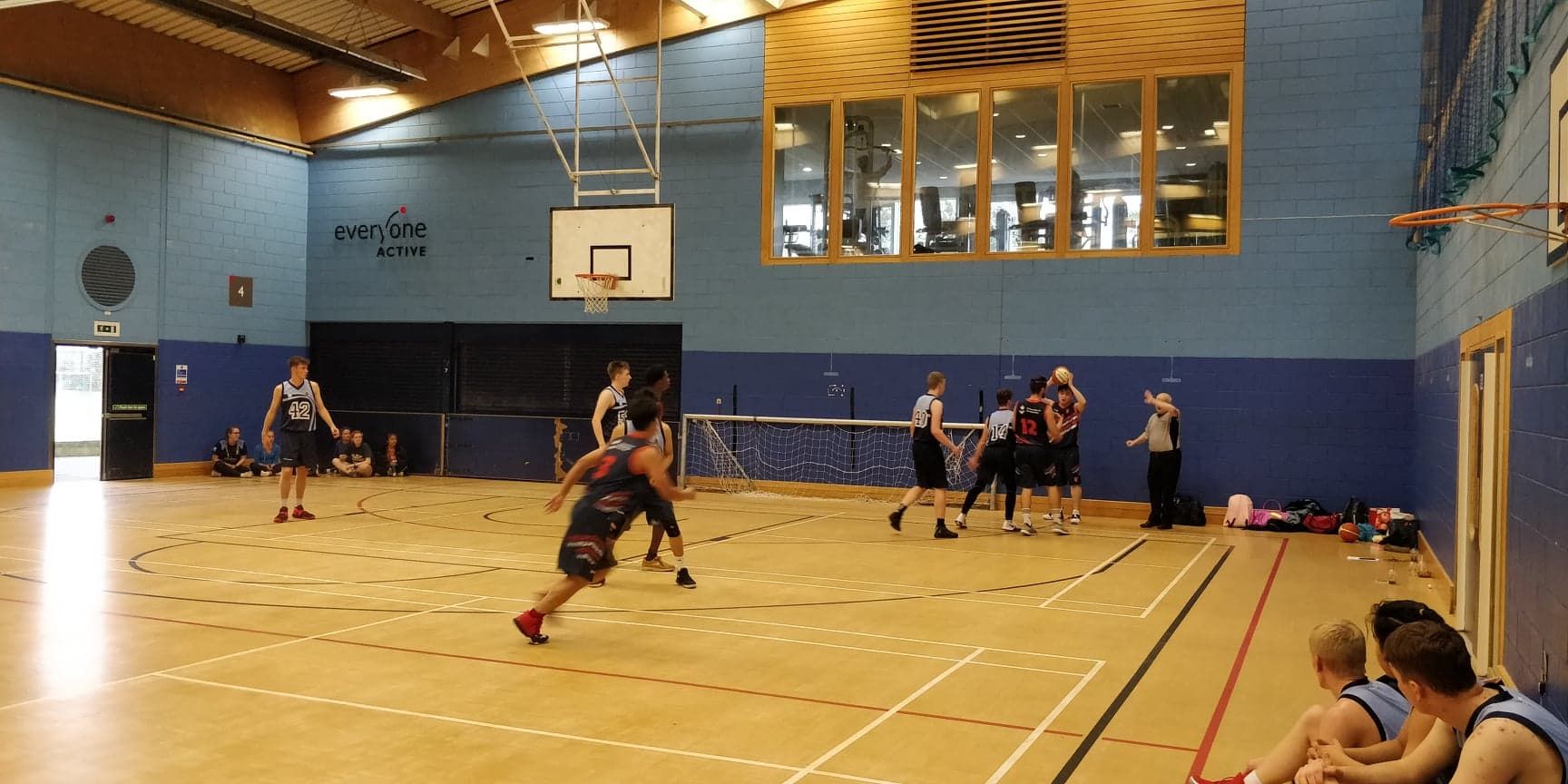
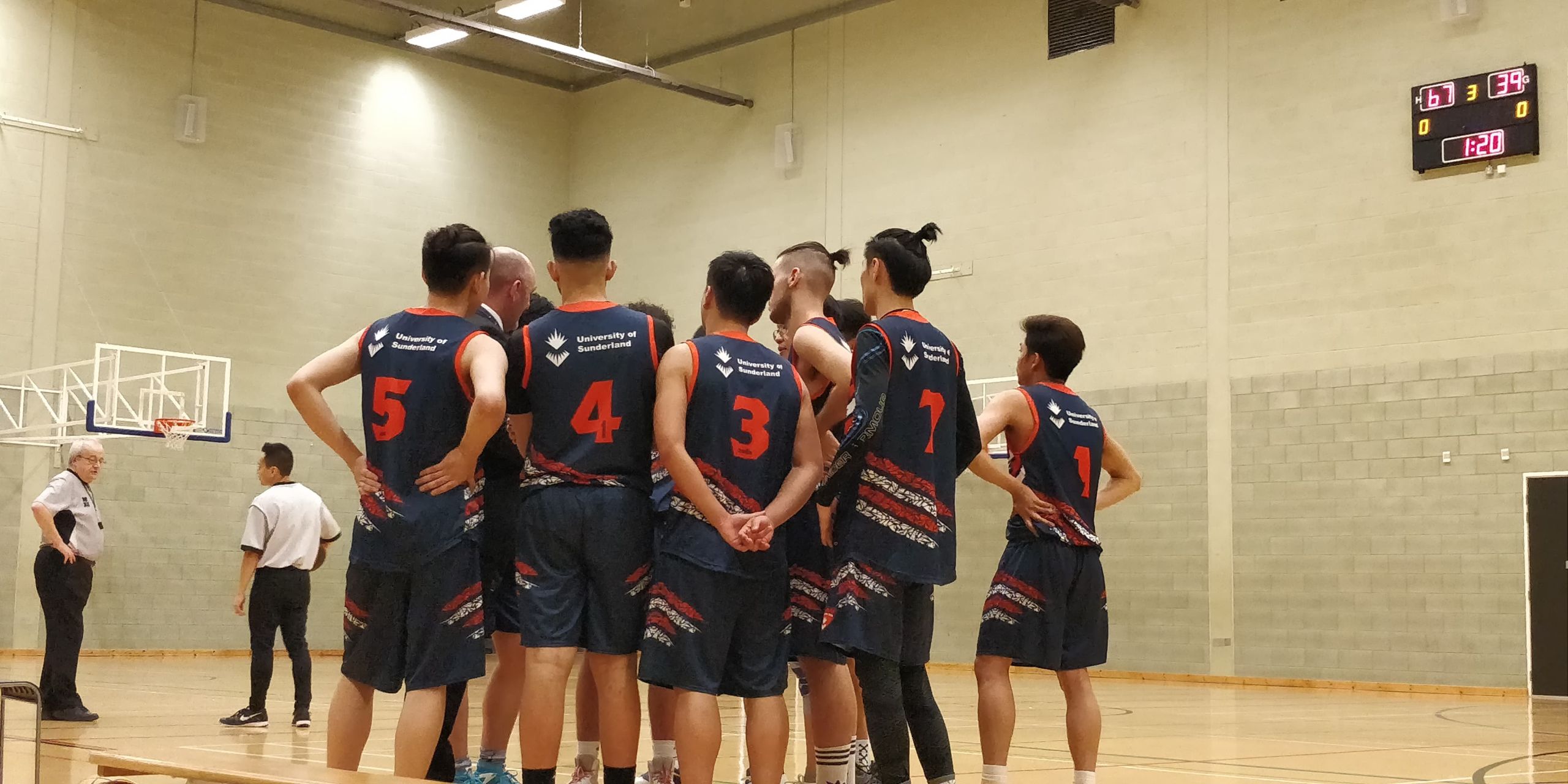
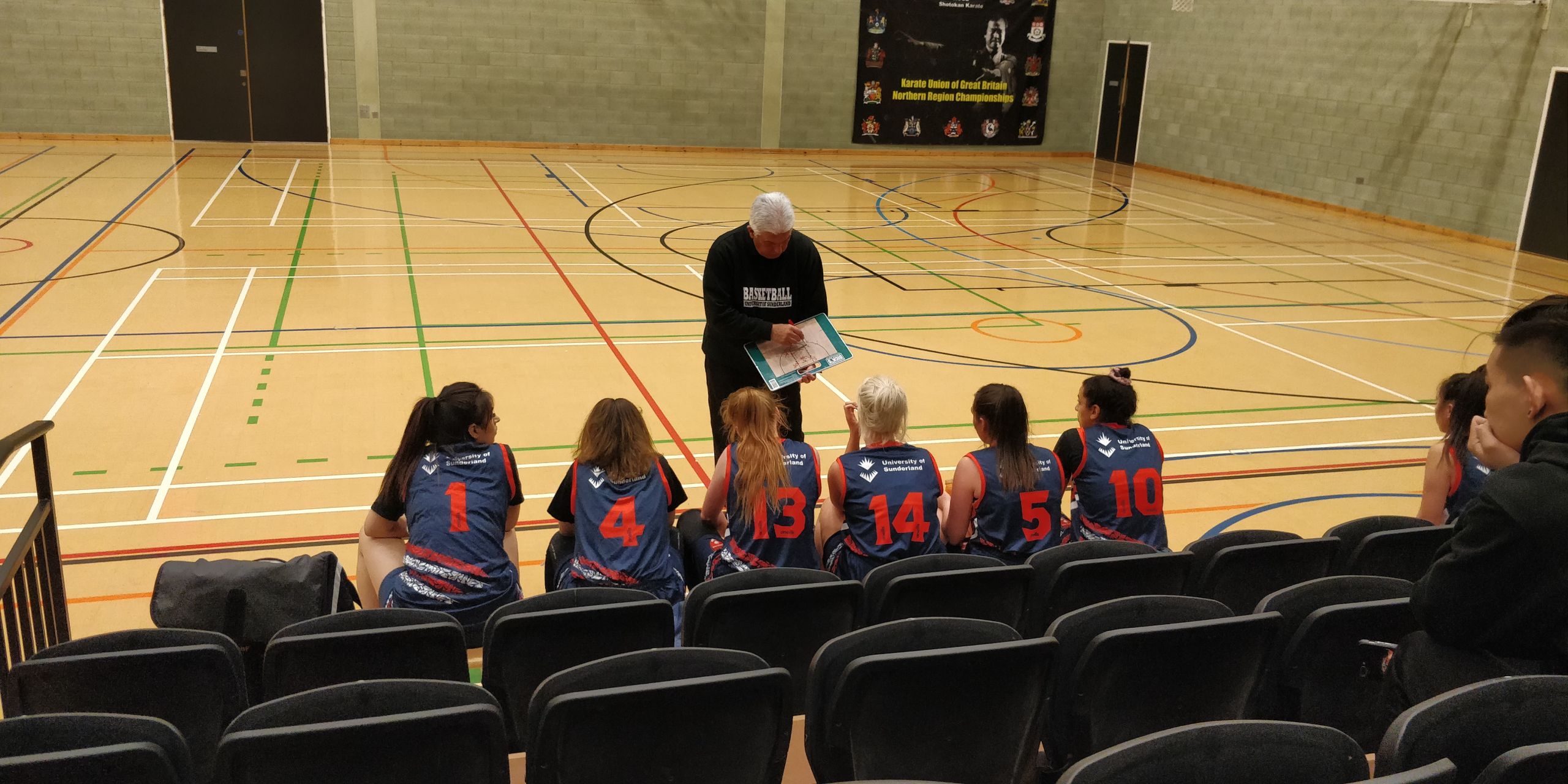
The pinnacle of the sport is the NBA and there have been cases where British athletes have tried to chase the dream and gone over to the US at a young age in search of sporting success. Former Team GB captain and two-time BBL season MVP Drew Sullivan spoke of his journey to America to play basketball in high school and college playing in the NCAA for Villanova: “I was ready to leave home and start this new adventure. I made it through, and I think I would have regretted if I had come back. It was daunting - there were a few times when I was on the verge of coming back but my mum and my coach convinced me to stick it out so ended up staying.
“When I was growing up the best path was to go to America and to high school then University and then seek the pathway to the NBA. The landscape for basketball is a lot different now. I think that the European leagues are a lot more respected so I would say they don’t have to put all their eggs in one basket and that the only way to get to what you want to is going to the states. Going to Europe instead is now a real viable option.”
For basketball in this country to grow, there needs to be more of a focus on bringing in the best British talent and finding strategies to make sure the British Basketball League has the best available talent from this country, Sullivan added: “What Russia have done, that's helped out and had a massive knock on effect on their national team, is that you can only play two imports at one time.
“This would force teams to really invest in British players. If you know you have to have a certain amount of British players on the court at all times, then it gives you the opportunity to use and unearth or sign more Brits so there’s less of a reliance on the imports.”
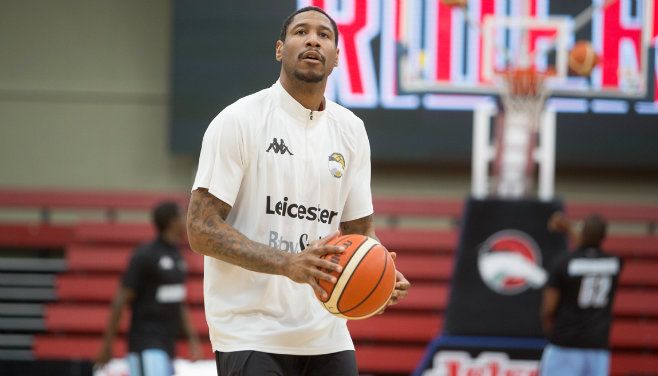
Drew Sullivan - IMAGE CREDIT: BBL.ORG.UK
Drew Sullivan - IMAGE CREDIT: BBL.ORG.UK
From speaking to many of those involved in both British and American basketball, it's clear that there needs major change regarding current recruitment process in the UK. This change could be inspired the US collegiate/draft system. There could be more funding to provide more expertise to younger players, constructing a definitive path to the BBL or even heightening competition to get there. Regardless, a fundamental change could see the rise of the BBL as a prominent sport.
After all it's proved in the past that going to America isn't always the way forward...
The next article in the series will look into the lack of media coverage in British Basketball.

